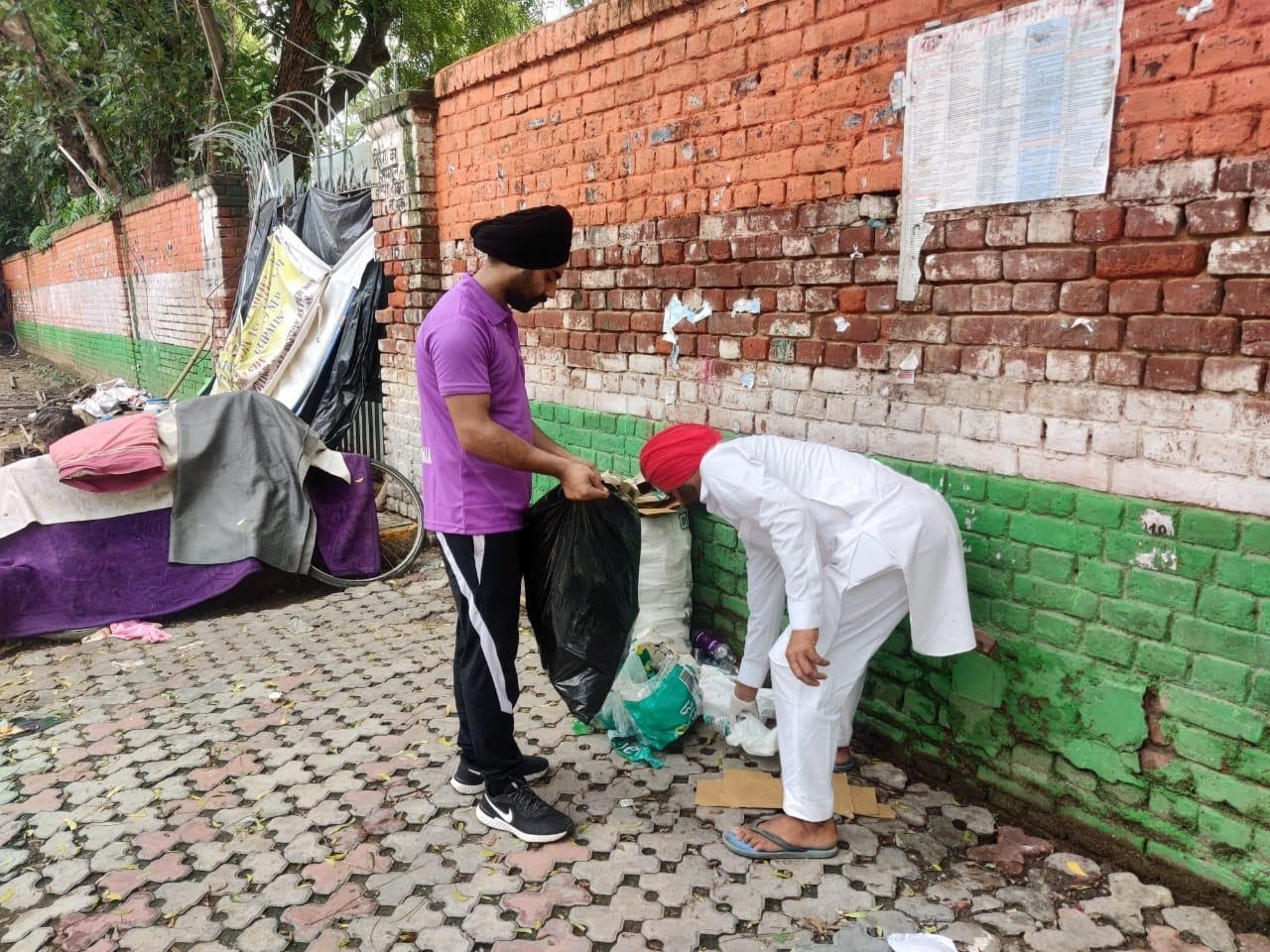At the Farmers’ Parliament Amidst Heavy Police Presence in Jantar Mantar
‘When we light the fire we are first to be destroyed’
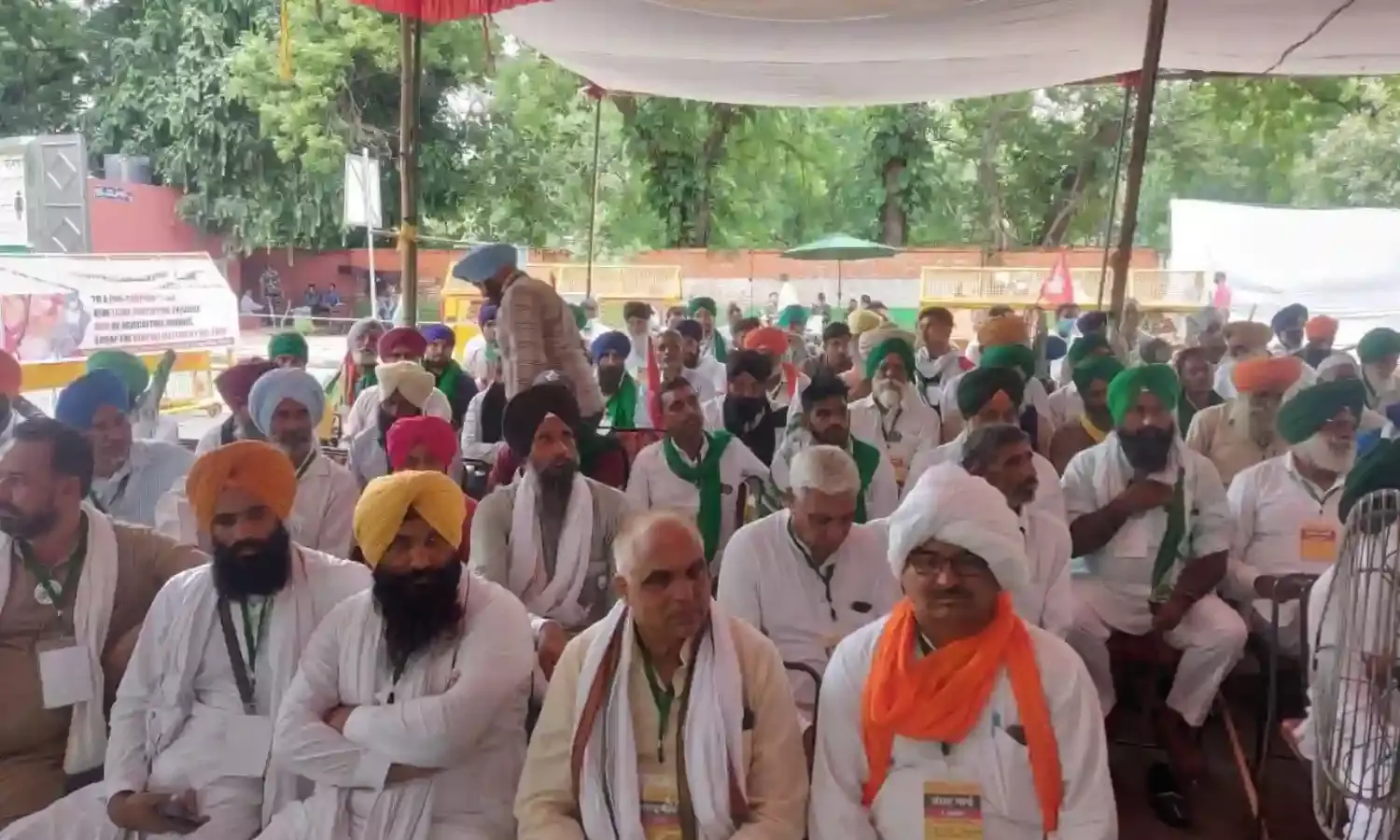
Hundreds of police officers stand guard behind barricades at Jantar Mantar in New Delhi, two kilometres from Sansad Marg where Parliament is in session.
Armed forces in blue and green stand ready with government buses and water tanks on all four sides.
Behind these interrogative officers at multiple checkpoints, a peaceful protest is being conducted by the country’s farmers, against the Indian government and its three agricultural laws.
“The government is running the parliament inside and we are pressuring them from right outside,” says Navtej Singh, a protesting farmer and representative of the Kisan Sansad or Farmers’ Parliament.
“The biggest failure of this government is that they have deployed police forces for no reason. The cost of this police will be a burden on the people of this country. No inconvenience should be caused to the general public through this barricading, just because a few ministers are scared,” he adds.
The farmers encamped at Delhi’s borders, mainly at Tikri, Singhu and Ghazipur, began their march to the capital on November 25 last year to protest the three “black laws” rammed through Parliament without consultation or discussion.
They say these laws will do away with the MSP (minimum support) price floor intermittently guaranteed by the state, and the price of their crops will be controlled by big corporations, threatening food security.
They have been holding their own parliament since July 22 in parallel with the monsoon session. They raise slogans and discuss matters related to the farm laws, and how state policy has destroyed the agricultural markets system.
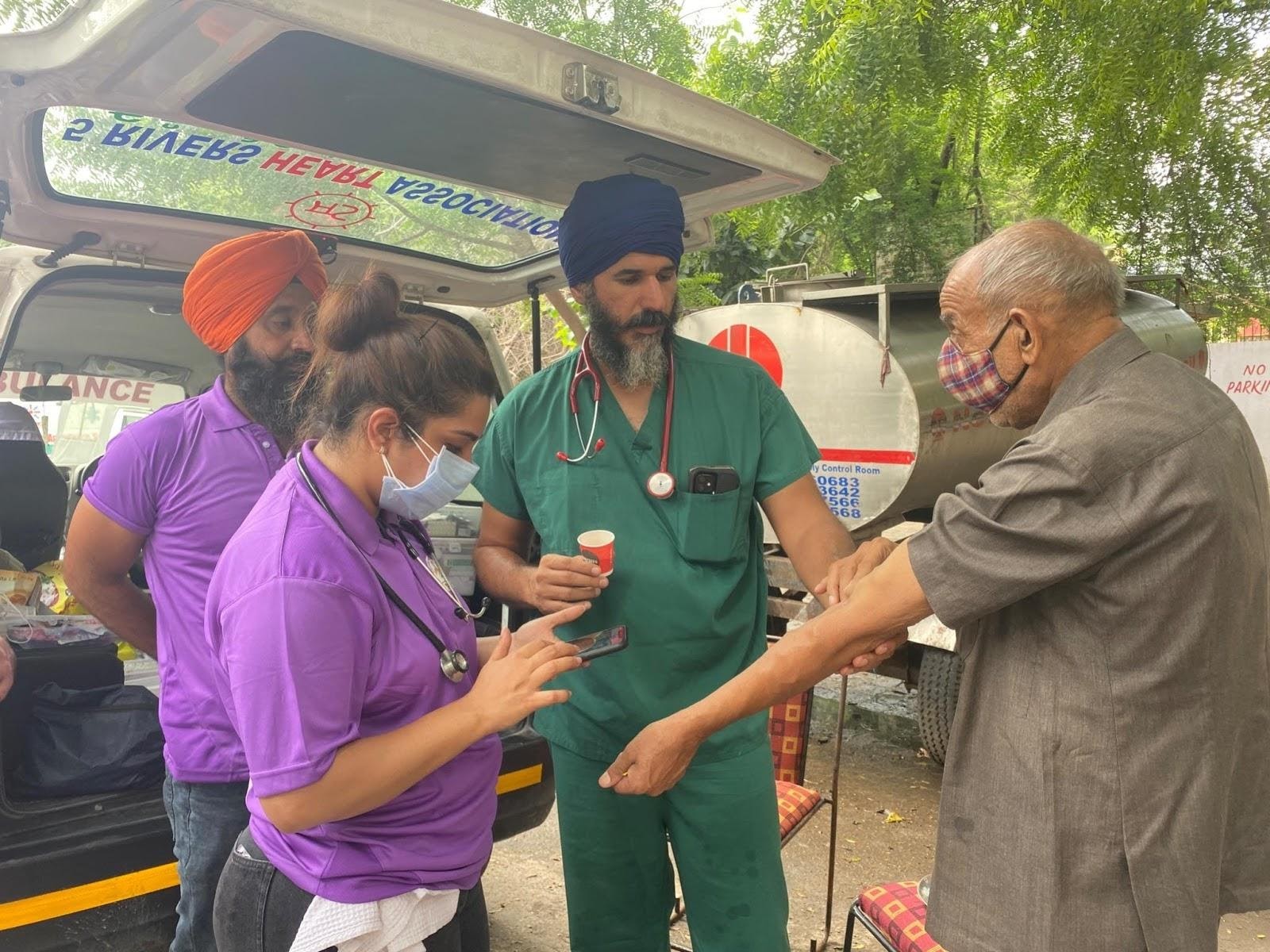
On Tuesday they discussed the accusations levelled against farmers on the environmental hazards of burning stubble.
“They accuse us of causing pollution, but we burn our stubble twice a year, which causes about 8% pollution. When we light the fire we are first to be destroyed, our kids, our elderly, and our animals. This is an excuse they use to attack us.
“We do not want to cause pollution, we care about the people. We ask them to give us a substitute for wheat, we will stop growing it,” said Kalwalpreet Singh Pannu, Speaker of the session on August 3.
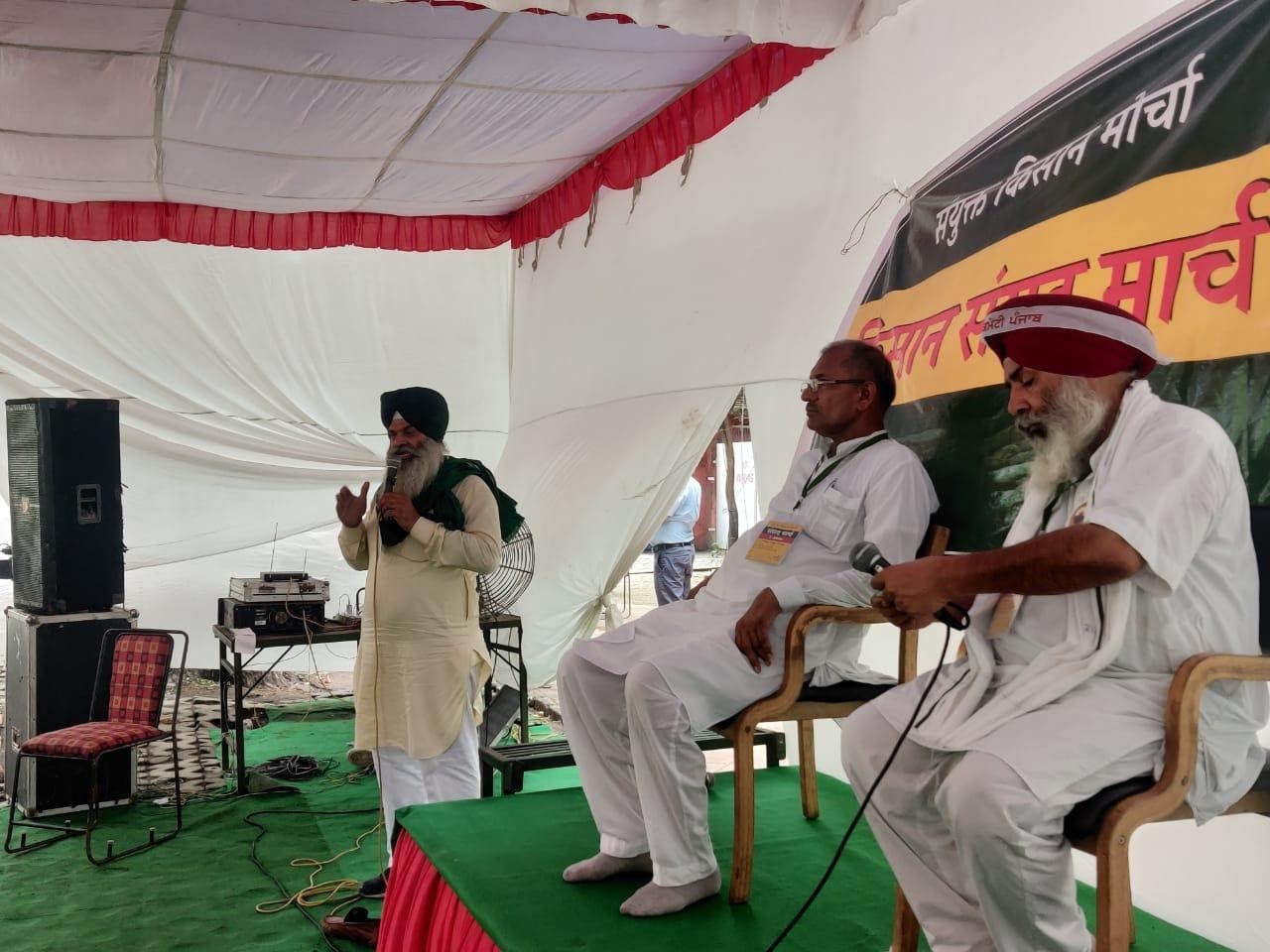
As they spend the day at Jantar Mantar from 11 to 5, volunteers help them out in different ways.
One such volunteer is Dr Swaiman Singh, who with a team of youngsters provides free medical facilities to farmers out of an ambulance labelled Sahaita Canada (Canada Aid).
The volunteers, wearing purple “Pind California” t-shirts, accompany the farmers every day from Tikri border and give them free medicines and health checkups.
“Our elders are on the roads - if this is not motivation for you to help them out you are dead inside,” says Singh. “We have accompanied them from the first day, and we will be with them until the last day.”
On the opposite side of Singh’s ambulance, another volunteer, Gurnaam Singh is unloading biscuits from his van. He has come from the Bangla Sahib Gurudwara in Delhi with food and water for the protestors.
“It is our duty to serve the farmers. We do not know what is happening between the farmers and the government. It is our duty to come here and serve tea to all,” he explains.
“We give tea to all farmers, security, and the media. Even if anyone wields a lathi at us, we will still serve them.”
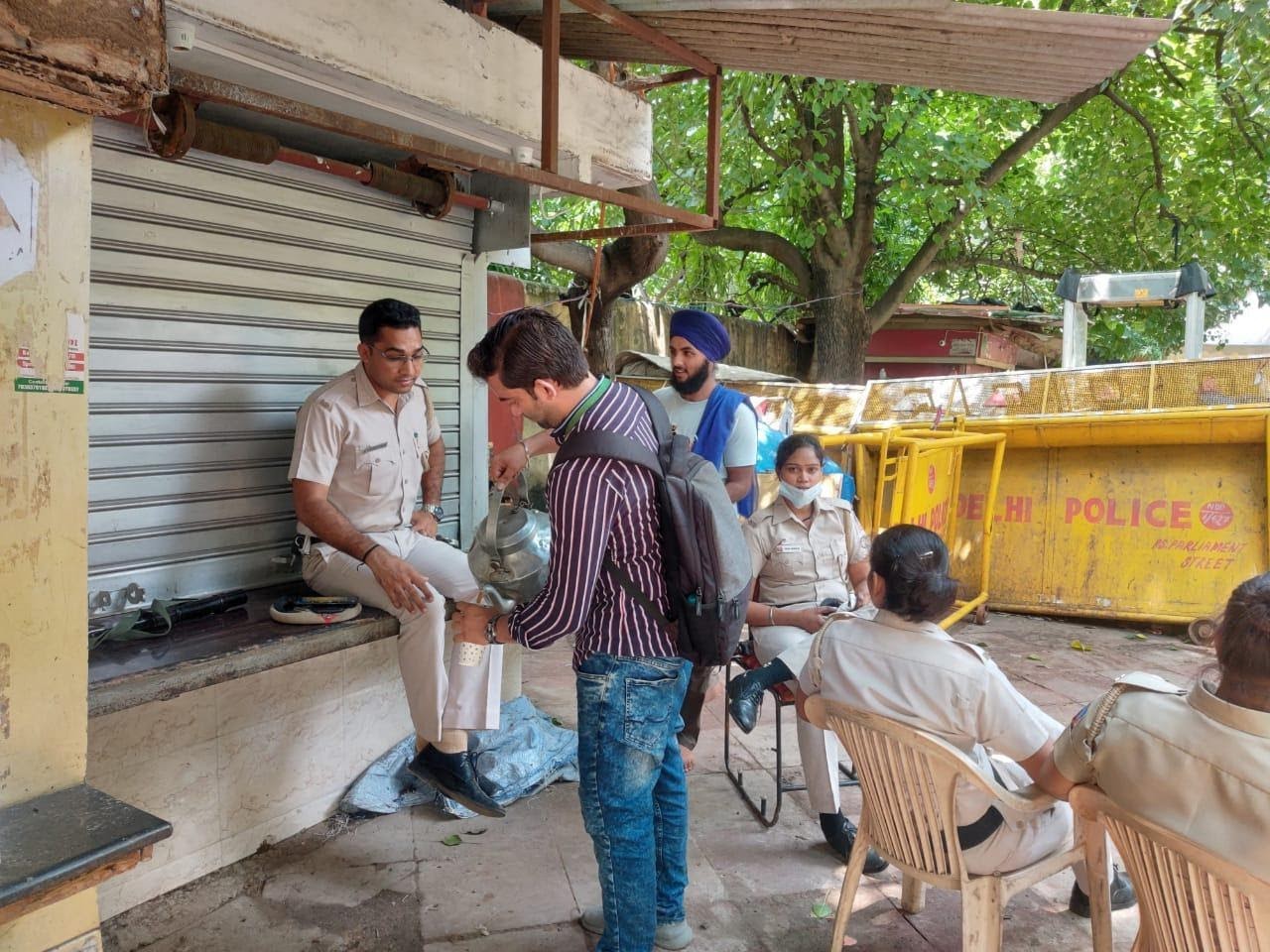
Over 500 farmers have lost their lives in the movement, which has been termed the largest protest in human history, according to the Kisan Ekta Morcha, the movement’s official social media handle.
It has seen an outpouring of support from across the country.
“The agricultural laws are harmful for farmers around the country. Soon people from every corner of the country will join this fight,” says Mahidhar, a farmer from Assam.
“We will start this movement in the northeast. Farmers from there are also angry and this movement will bring the country together.”
A farmer leader from Telangana, Pasya Padma, tells The Citizen that “farmers in Telangana are in complete support of this movement. We are holding constant programs to show our support.
“It is misinformation that the fight is only important for farmers from Haryana and Punjab, and not those from the rest of the country.”
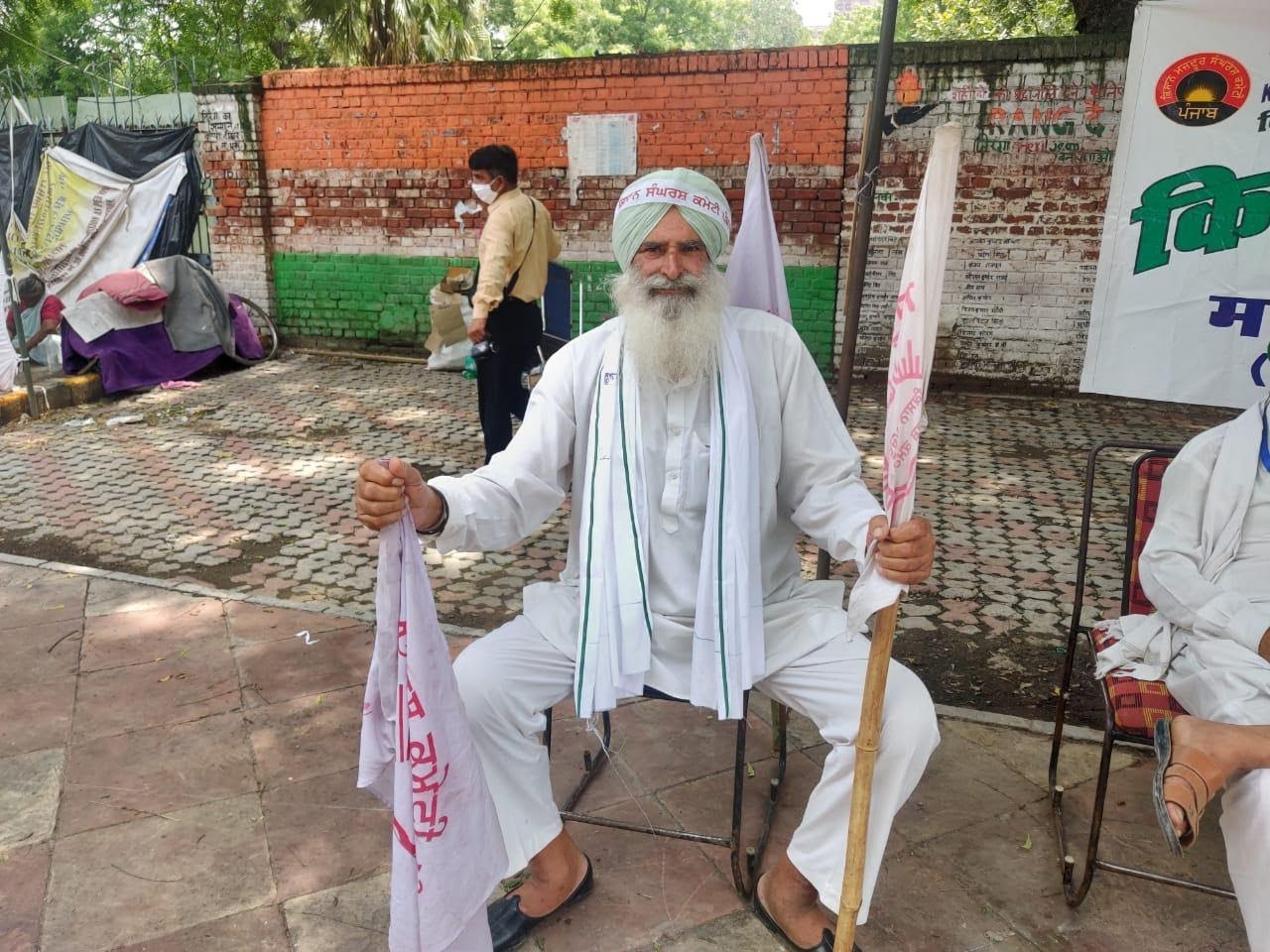
Farmers from Uttar Pradesh think the movement will have a strong impact on the upcoming elections.
“The chief minister of UP, Yogi Adityanath, does not listen to anyone and does as he pleases. He has tortured us,” says Kamlesh Yadav, a farmer leader from the state.
“We want to remove this government from the state as well as centre, and the people will show this government the result of not listening to the farmers,” he adds.
“The opposition should speak out for us and make this a topic in the elections. If they had opposed this government, the laws would never have passed.”
Another farmer from UP, Anil Mishra of Unnao, says “When a movement has started and the politicians are not working for us, we will vote against them and elect a farm leader.
“Whether in the opposition or in power, all leaders are the same. Even the opposition leaders do not represent our issues justly.”
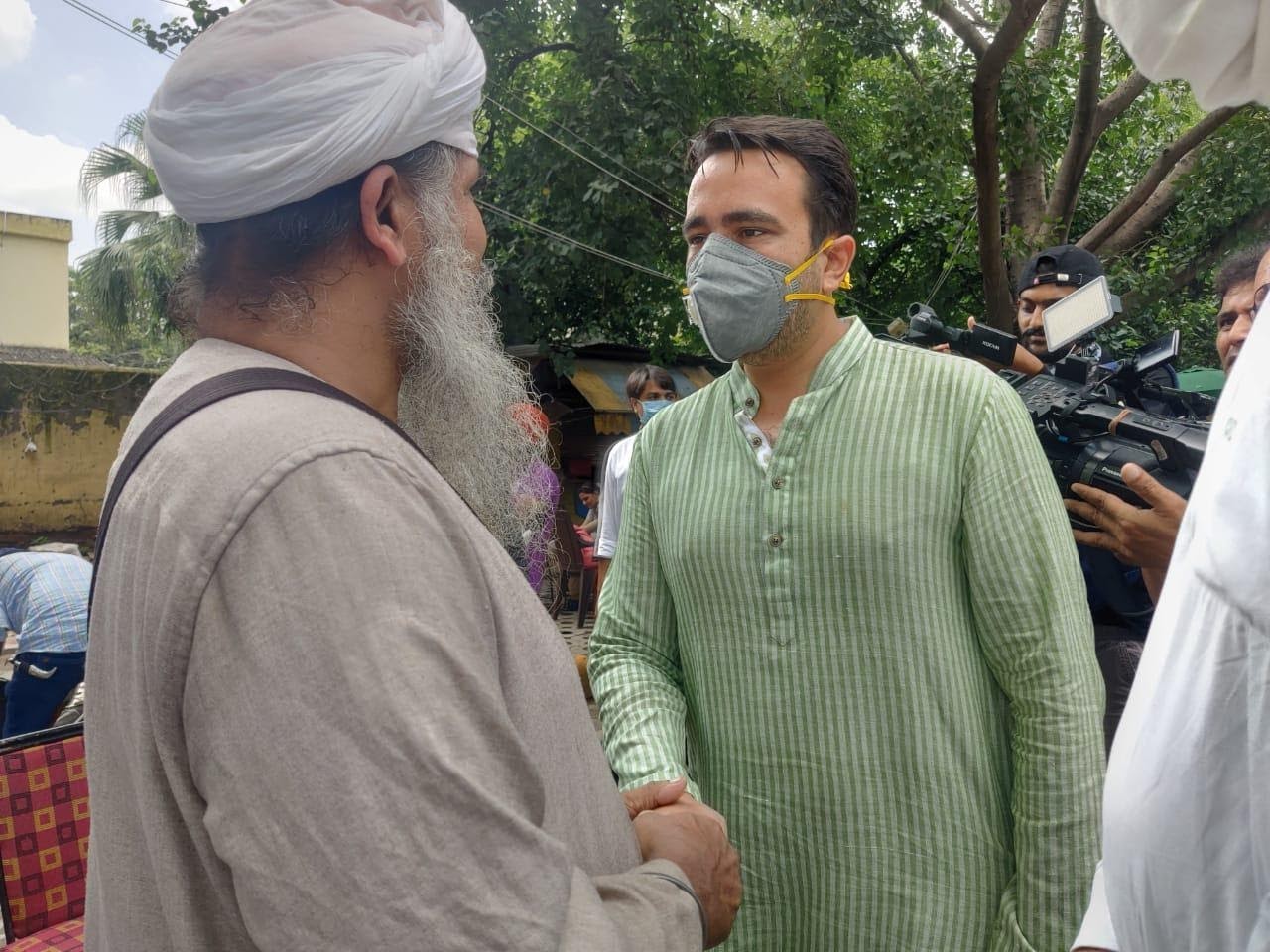
Twelve major opposition parties, including the Congress, Trinamool, Samajwadi Party and DMK have extended their support to the farmers’ movement.
A joint statement issued by Congress president Sonia Gandhi, former prime minister H.D Deve Gowda, NCP chief Sharad Pawar, and chief ministers Mamata Banerjee, Uddhav Thackeray, M.K Stalin and Hemant Soren says the Union government must resume talks with farmer leaders and repeal the three farm laws.
“The Central Government must stop being obdurate and immediately resume talks with [the Samyukt Kisan Morcha] on these lines,” it says.
Other signatories include former chief ministers Farooq Abdullah (JKPA) and Akhilesh Yadav (SP) besides Tejashwi Yadav (RJD), D Raja (CPI) and Sitaram Yechury (CPM).
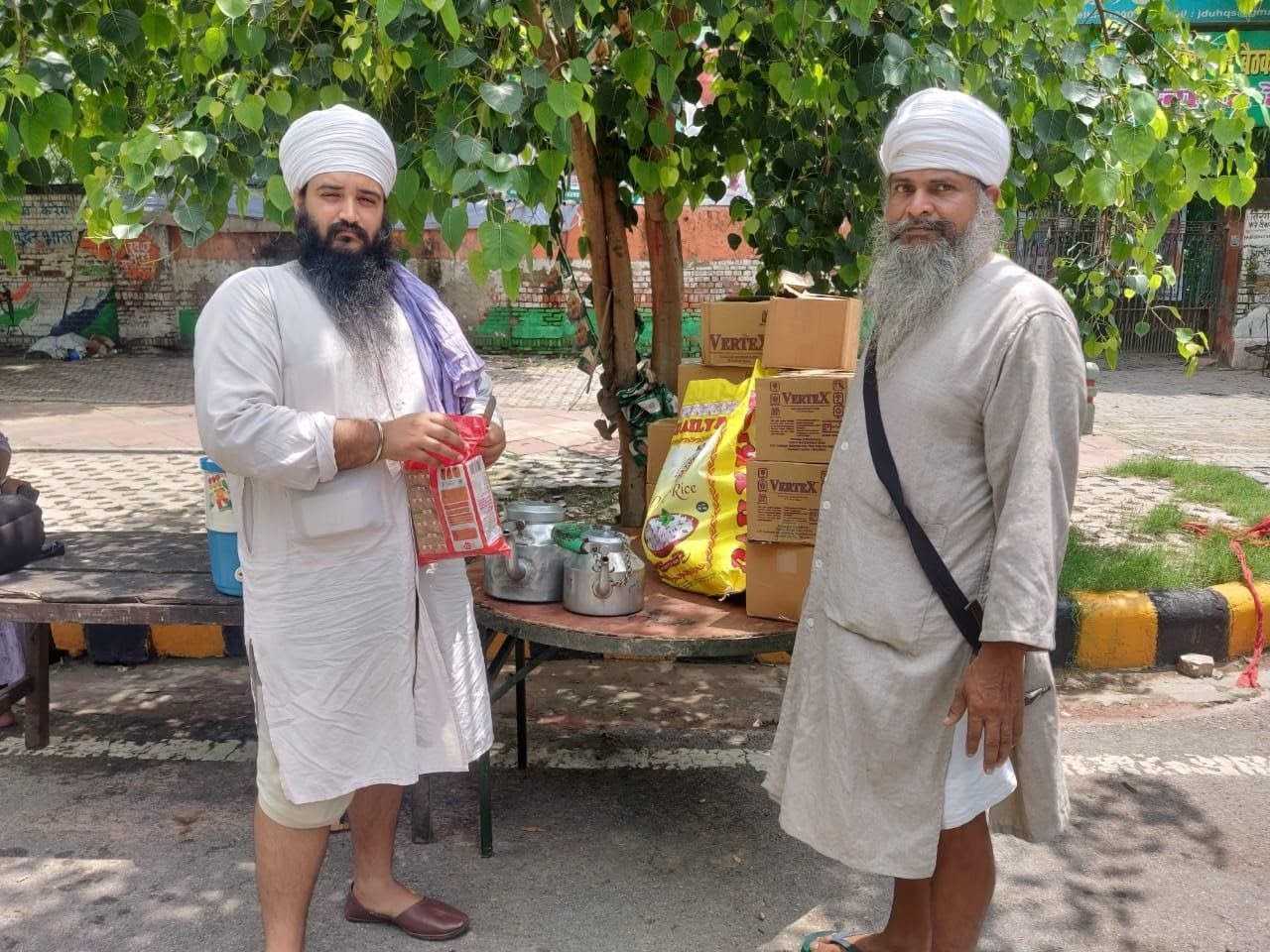
Many celebrities and activists worldwide have also come out in support of the movement thanks to social media, and have been slammed by the Union government for it.
After pop icon Rihanna, teenage climate activist Greta Thunberg and lawyer-author Meena Harris, niece of US vice-president Kamala Harris spoke out in support of the protests, India’s foreign ministry lashed out on Twitter, calling their comments “neither accurate nor responsible”.
Amidst the heavy police presence at this peaceful protest, Sansad Speaker Kalwalpreet Singh Pannu tells the assembly:
“We did not ask for the security. They have deployed this security for fear of farmers going to the Parliament. Modi is scared that if even one farmer comes to Parliament, he will be humiliated in front of the entire world.”
